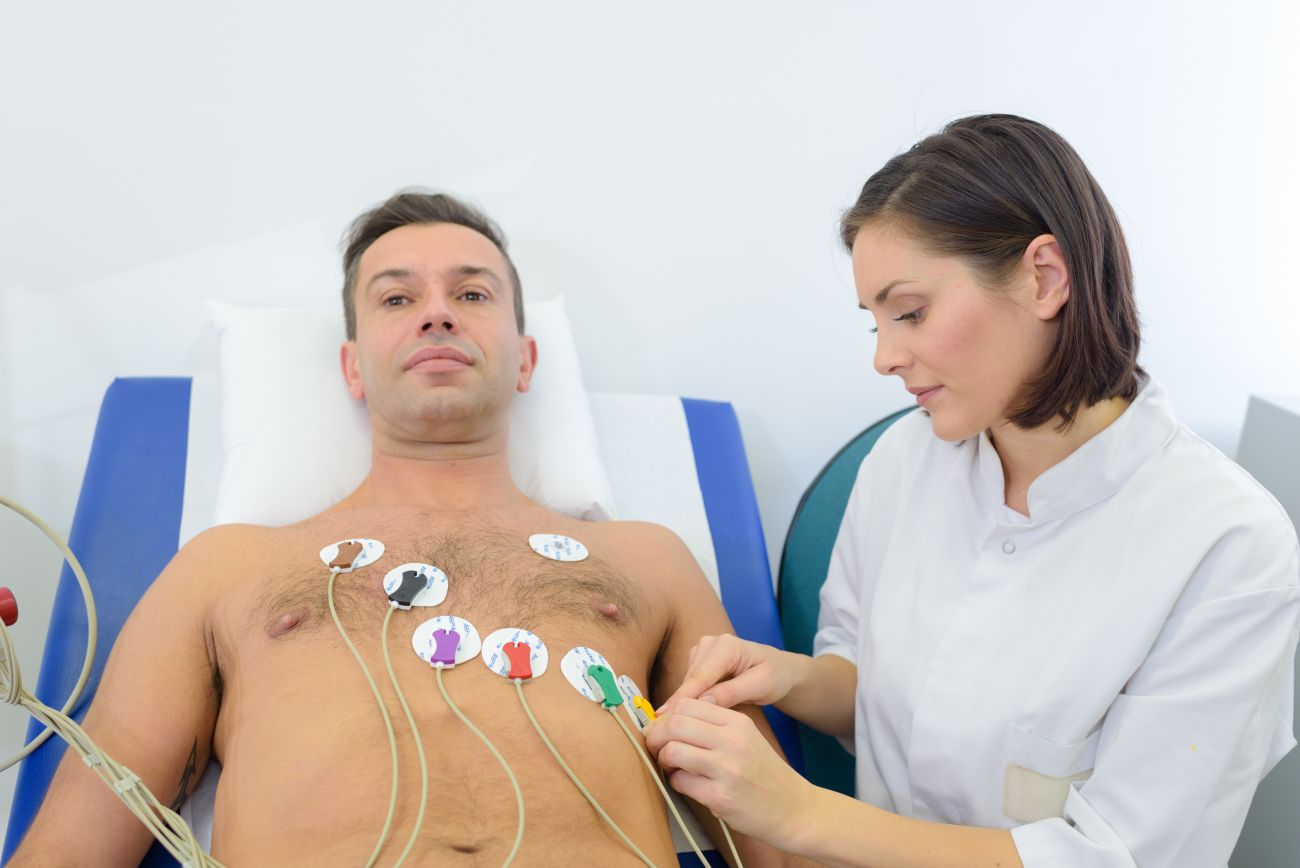 Cardiovascular Technician
Cardiovascular Technician
| Salary Range | Jobs Available |
|---|---|
| $35,400 - $99,600 | 4,900+ |
What Does a Cardiovascular Technician Do?

Responsibilities
- Prepare patients for electrocardiogram (EKG) tests, stress tests and other heart tests
- Explain test procedure
- Monitor patients' blood pressure and heart rate during EKG
- Operate diagnostic machine and run other tests
- Review images and identify any abnormalities
- Analyze findings and discuss with physician
- Review and record all patient information
- Prepare and maintain diagnostic medical equipment
How To Become a Cardiovascular Technician: FAQs
The bottom line:
Job opportunities are plentiful in this field, whether you’re looking for an entry-level technician role or a more advanced one. With an average salary of close to $60,000 and a chance to be part of a life-saving medical team, this is a healthcare career with potential. (That's also why it's considered one of the top-paying skilled jobs that don't require a bachelor's degree.) If this sounds like a good fit for you, check out SkillPointe’s training offerings and get started in your new career!

Why I became a cardiovascular tech
Shaun Foust became interested in heart health at the age of 12. That's when she read the materials explaining her grandfather's open heart surgery.
"I always knew I wanted to work in the medical field — I just wasn’t sure which part," she says.
That's what pulled Shaun into the fold, but what has kept her there is the rewarding work.
Cardiovascular technologists "are constantly reminded that we make a difference during a very difficult time."
Find out what else she has to say about being a cardiovascular technologist.
Find Cardiovascular Technician Training In Your Area
Need help reaching your goals?
Explore our Financial Resources page for scholarships, FAQ answers and student support services.
